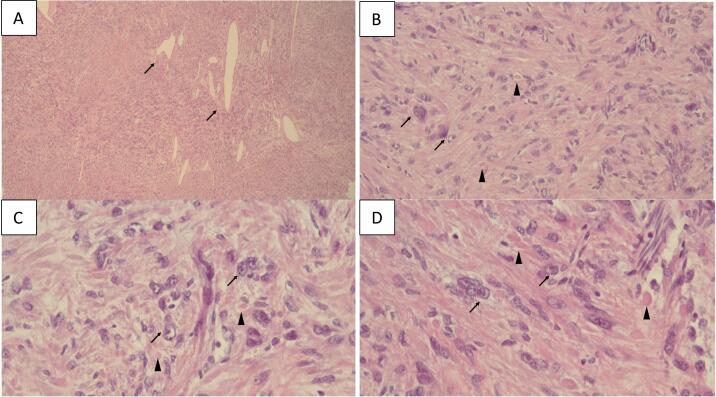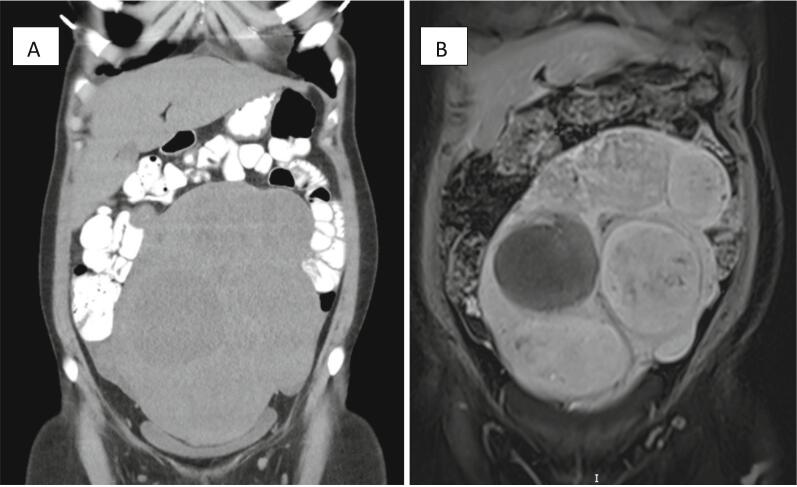Hereditary leiomyomatosis and renal cell cancer (HLRCC) syndrome in a young patient presenting with a large uterus: A case report and review of the literature
Abstract
Hereditary leiomyomatosis and renal cell cancer (HLRCC) syndrome is a rare genetic disorder caused by a germline mutation in the fumarate hydratase (FH) gene. It is clinically characterized by cutaneous leiomyomas, uterine leiomyomas and renal cell cancer. A 31-year-old woman presented with severe abdominopelvic pain associated with severe menorrhagia which required a visit to the emergency department. Computed tomography (CT) showed a severe enlargement of the uterus with newly diagnosed fibroids. Magnetic resonance imaging (MRI) confirmed the finding of an enlarged uterus with mild left and moderate right hydronephrosis and hydroureter. The patient tried to manage the pain with oral over-the-counter medications and heat pads without significant relief. She was recommended to proceed with total abdominal hysterectomy and bilateral salpingectomy. She tolerated the procedure well and had an uneventful postoperative recovery. Pathology showed morphologic features, including the staghorn vessels, alveolar edema, eosinophilic cytoplasmic inclusions and prominent nucleoli which are characteristics for FH-deficient leiomyomas. Genetic testing was positive for a pathogenic variant in the FH gene associated with HLRCC. This case highlights the importance of proceeding with genetic testing in patients with personal and family history of leiomyomas and unusual pathology findings. Early identification of the syndrome can lead to appropriate screening for renal cell carcinoma.



 求助内容:
求助内容: 应助结果提醒方式:
应助结果提醒方式:


